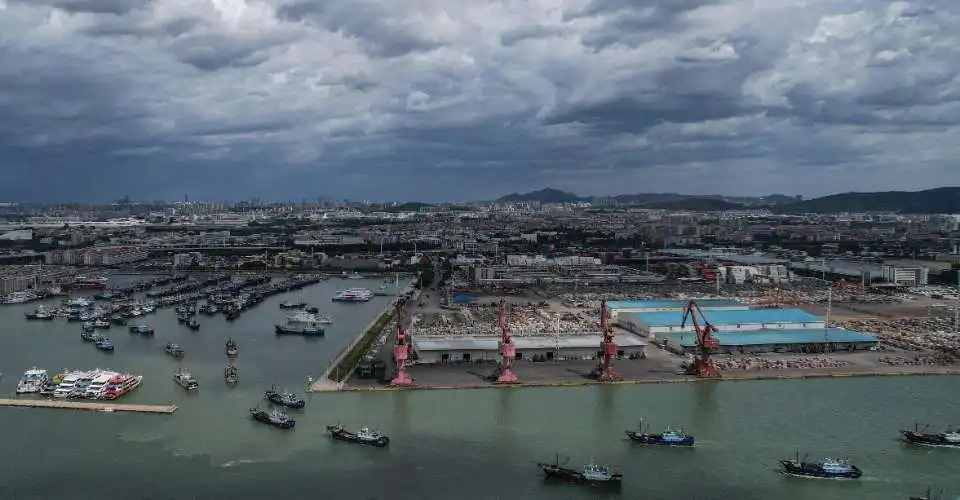
After a divisive election campaign, Ms Le Pen faces an uphill battle with her 44-year-old opponent polling ahead.
In order to win they both need to attract voters who backed other candidates in the first round.
But these are two polarising figures in France and abstention is a key factor.
Mr Macron’s detractors call him arrogant and a president of the rich, while the far-right leader has been accused of having ties to Russian President Vladimir Putin.
Some 48.7 million people are eligible to take part and by midday (10:00 GMT) turnout was down on five years ago at 26.4%, but not as low as in the first round two weeks ago. First projections of who has won will come at 20:00.
Marine Le Pen was first of the two candidates to vote, which she did in her stronghold in Hénin-Beaumont. As she arrived, she sheltered a baby boy from the sun and told him: “I will protect you.”
Mr Macron voted later in the northern resort of Le Touquet alongside his wife, Brigitte. He rose to power on a whirlwind promise of change, but many complain they are yet to see it.
His presidency has been buffeted by protests, the Covid pandemic and now the rising cost of living.
Marine Le Pen, meanwhile, has learned from the mistakes she made when she was resoundingly beaten by the same opponent in the second round in 2017. This is her third tilt at the presidency and if she fails it could be her last.
The great unknown in this election is how many voters will refuse to back either candidate, whether by casting a blank ballot or not turning out at all. Much of France is on holiday and turnout in parts of Paris appeared to be lower than usual.
The campaign has been short but the choice for voters is clear, between a pro-European sitting president and a nationalist candidate who seeks to ban the headscarf and restrict immigration.
Whatever the result, Mr Macron will address voters on Sunday evening from a stage at the foot of the Eiffel Tower.
‘This place is dead after 7pm’
The rising cost of living – described in France as pouvoir d’achat or spending power – has become the number one issue for French voters and Marine Le Pen has promised voters an immediate onslaught on it if she wins.
She has fared particularly well in the smaller towns and rural areas that have struggled economically during the Macron era.
She came top two weeks ago in La Ferté-sous-Jouarre, a pretty town on the River Marne an hour east of Paris. Sitting outside a bar, Cécile says the pandemic hit the area particularly hard: “Before Covid there was a bar here called Avenue de Champagne, but that shut and now the place is dead after 7pm.”
She will vote Le Pen as will Fred, who works on the Paris metro network: “People can’t afford to pay for gas and electricity. When I’m in Paris some things are too expensive and you have to eat.” African immigrants he knows in the capital also say they will vote for her, he adds.
There are plenty of shy Le Pen voters here too. France needs to change, they say, and they leave it at that.
She has carefully moderated her views, but still plans a referendum on strict immigration controls and her idea for a “Europe of nations” would tear the EU apart.
Jean-Claude, 66, may not agree with her hostility to the EU, but he complains too many people take advantage of France’s welfare system and take drugs.






